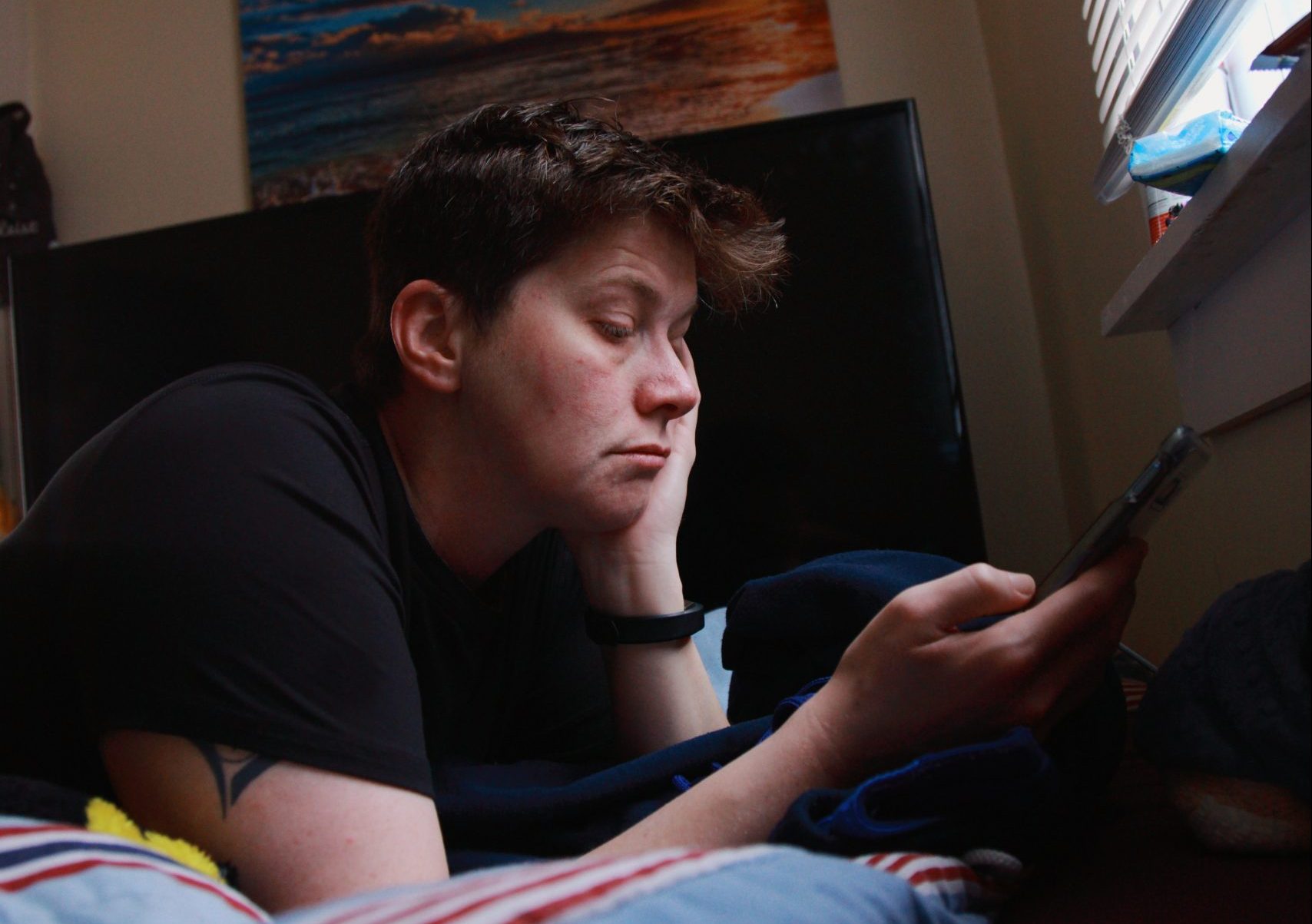We mustn’t feel guilty for the increased screen time we’ve been experiencing.
We’ve all experienced the pang of guilt, when that notification bubble pops up on our phones, reminding us of the seemingly-endless time we’ve spent staring at our screens. That pesky nudge that we may have spent one too many hours scrolling through TikTok or Instagram as we navigate our ongoing lockdown.
It’s hard to ignore the plethora of information and research showing too much screen time can have a negative effect on our mental health and productivity, causing us to associate wrongfulness with time spent in front of our digital screens.
Now, we hear you. How are you supposed to unplug when work, study, communication with loved ones, modes to unwind and even workouts are all online? It’s not just a matter of feeling naked without our phones anymore. We rely on being online for our livelihood and responsibilities as an Australian citizen.
Technology and education researcher, Dr Karl Sebire, says not all screen time is bad, and that we mustn’t be so hard on ourselves given our current circumstances.
“It’s about balance. So, just like how we all enjoy a cheat meal or an extra drink on the weekend or things like that, you shouldn’t feel guilty if you have some downtime scrolling through TikTok or looking at things on Instagram, as long as it’s something that you find relaxes you,” Dr Sebire says.
“It becomes negative as far as screen time goes, if it starts to make you either sad or depressed, or you find you’re not achieving other tasks because you’re drawn into the things on your phone or laptop, tablet or whatever it is.”
Dr Sebire says we should view screen time the same as calories. All foods contain calories but depending on your choices it can either fuel or harm your body. So, there is beneficial screen time, such as research for an assignment or emails with clients which equates to productivity, and then there are moments where you’ve perhaps found yourself in a YouTube rabbit hole mindlessly watching a video of a clumsy panda.
But, Dr Sebire says just like food, it’s about moderation. We should have the choice in engaging in ‘calorific’ online activities but it’s about making responsible choices and practicing self-control.
“So, it’s about the balance and if you’re looking at Instagram Stories and it’s just full of people not in lockdown and you’re feeling a great sense of FOMO or things like that, you’ve got to ask yourself is that a good use of screen time? Is it good calories or bad calories?” Dr Sebire says.
With COVID-19 pivoting our lifestyle online, it’s no secret our screen time has accelerated at high speed. Data released from consulting firm Kantar in April revealed an overall increase in media consumption across all platforms in direct correlation with the pandemic. Web browsing increased by 70%, TV viewing by 63% and social media engagement increased by 61% over normal usage rates.
The data also shows that people in the 18-34 age bracket displayed the biggest increase in usage across messaging platforms. WhatsApp, Facebook and Instagram have all seen a 40%+ increase in usage from under 35-year-olds.
Facebook also shared its own data in March showing views on Instagram and Facebook Live doubled in one week while also reporting an 1,000%+ increase in Messenger group video calls the month prior.
It’s probably a safe assumption to make that not all time consumed glued to our digital screens over this period was benefiting our productive mind or feeding our soul. There are times spent on our devices we could most likely reassess and review.
The benefits of unplugging our devices, beyond putting a blanket on the stream of COVID-19 updates, are a plenty. Beyond Blue says removing yourself from your screen every now and again can result in a “more content and calmer you”.
It will even cure obesity! Okay, not quite. But, Beyond Blue does acknowledge Australia’s obesity issue can largely be associated to a lifestyle tied to the couch, staring at a screen.
As Melburnians remain in lockdown for the next little while, stepping away from our digital devices will continue to be a difficult, and often unrealistic, task. But Dr Sebire says simple things like switching FaceTime catchups to a normal phone call can make a big difference.
“We’ve evolved to communicate non-verbally and now our brains are working overtime to understand each other when all those cues are lost,” Dr Sebire says. “So that’s why people are probably feeling an immense amount of fatigue at the end of the day sitting on Zoom because your brain’s working overtime to try and understand the things that come naturally when you’re face to face with someone.
“So, you might be able to just have a chat, either walking outside or sitting on the couch and you don’t have to be looking at yourself almost the whole time. But, if you want to chat, you might prefer to text them, or a simple old-fashioned phone call might do the trick.”
Another thing that’s worth being wary of is checking in on yourself if you’ve just gone from working screen to social screen with no downtime in between. Do I need to take a break?
Taking time to ensure you’re breaking up your ‘good’ and ‘bad’ screen time can help your brain process the difference between work and relaxation. But, the main takeaway is to not feel guilt and to acknowledge that screen time is healthy.
“Think about if we didn’t have any screen time at the moment, how truly isolated we would be and to look forward to the fact that hopefully in the coming weeks, we will be able to put the phones away and to be without them,” says Dr Sebire.
Never miss a story. Sign up to Beat’s newsletter and you’ll be served fresh music, arts, food and culture stories three times a week.

